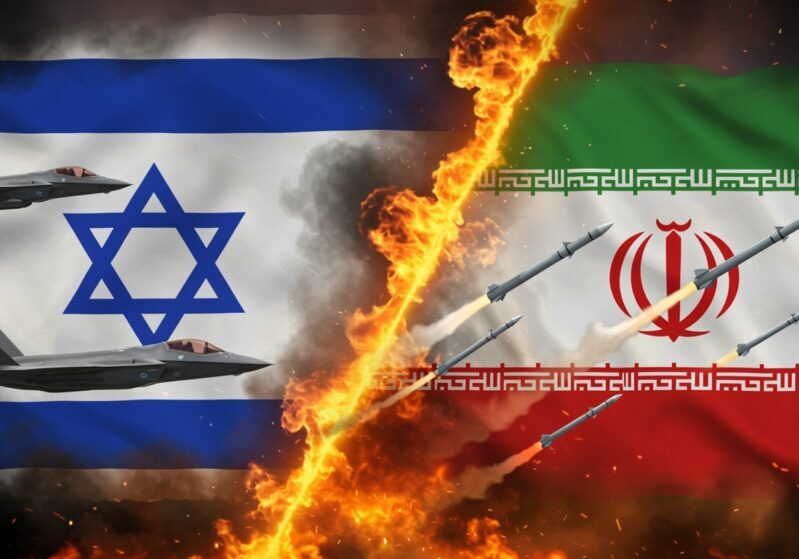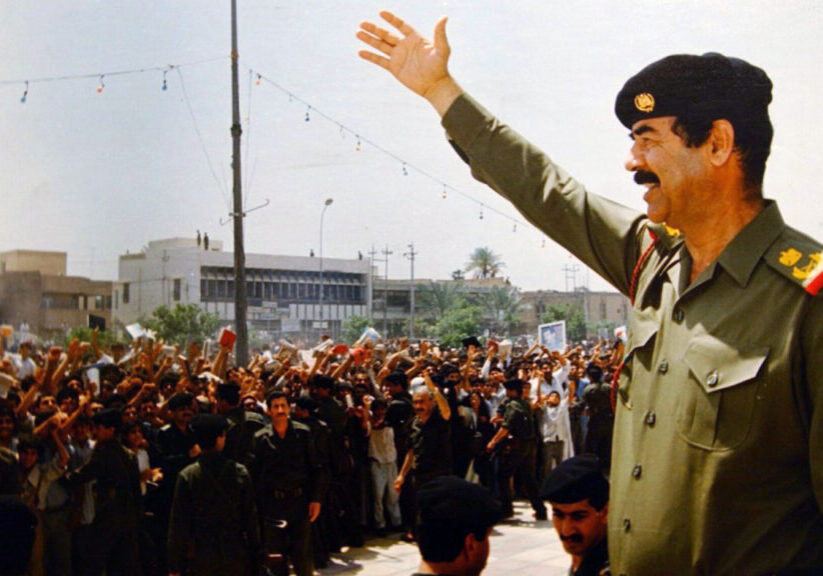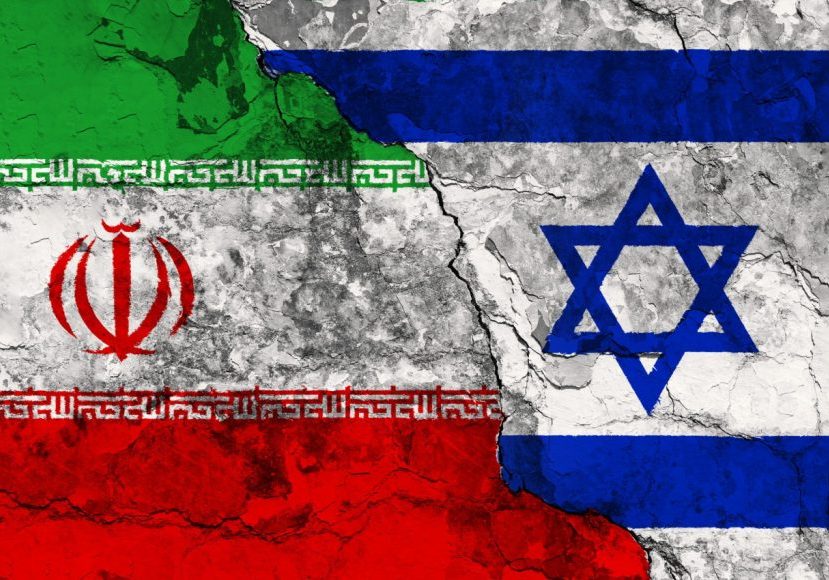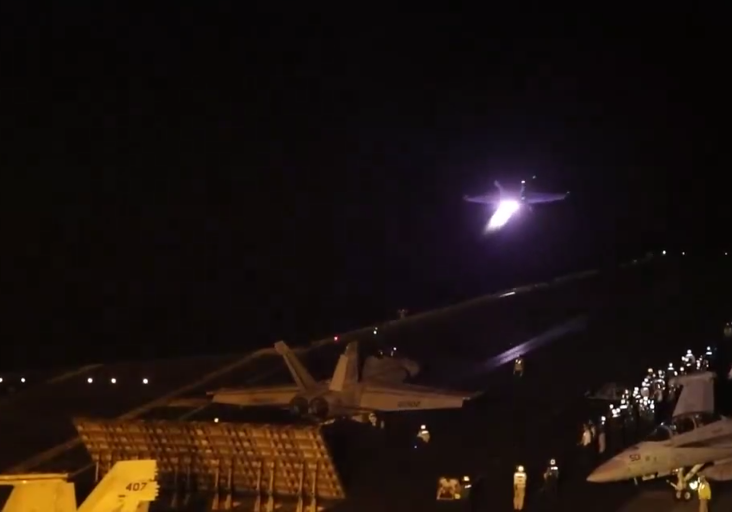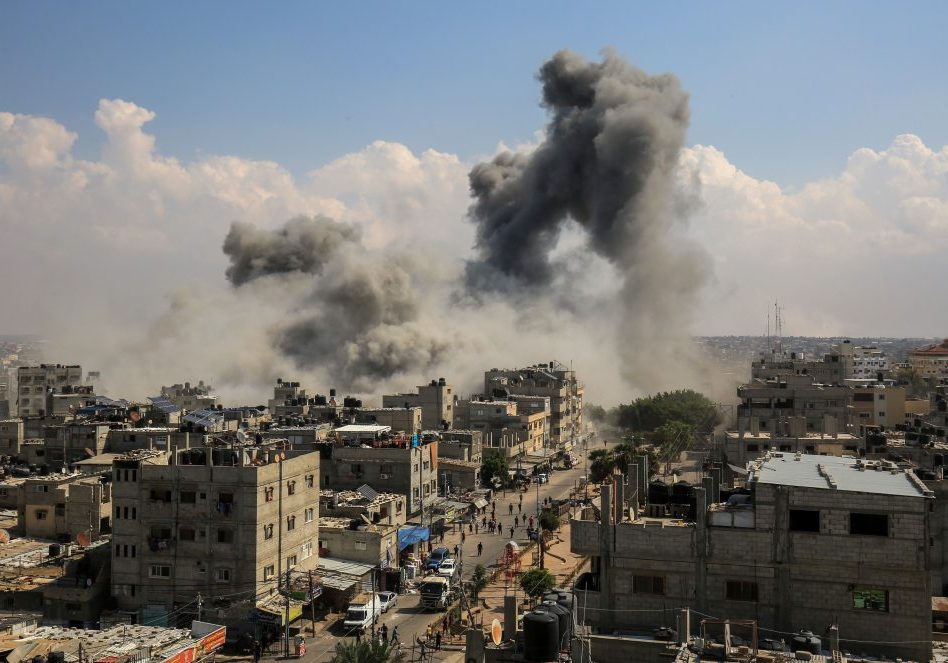Australia/Israel Review
Hope and Change in Iraq
Mar 26, 2010 | Reuel Marc Gerecht
By Reuel Marc Gerecht
In Iraq we are now where we should have been in 2005 if the Sunni Arab community had not staged a bloody revanchist insurrection. The parliamentary elections on March 7 gave us a good snapshot of the real Iraq: an insecure Sunni Arab minority more or less united in one bloc, the Shi’ite Arab majority building self-confidence and naturally fracturing along religious/secular lines, and the Kurdish (predominantly Sunni) minority united against the Arabs but internally fractious and increasingly dissatisfied with the two families who’ve ruled Kurdish politics for decades.
At first glance, we’ve got a four-way horse race, where shifting coalitions could produce surprising results (a Kurdish-religious Shi’ite coalition, a Sunni Arab-secular Shi’ite coalition, or even a Sunni Arab-Kurdish alliance, for example). Although the returns aren’t final at this writing, it appears Shi’ite Prime Minister Nuri al-Maliki’s State of Law slate has come in first; the Iraqiya coalition, which represents Arab Sunnis and some secular Shi’ites, a close second; and the National Alliance, which pulls together a wide array of Shi’ites, especially from the more religious south, a close third. The Kurds, meanwhile, split their vote between the Kurdish Alliance, which is the disputatious marriage of the Barzani and Talabani political machines, and the feisty independent Change Movement led by Nawshirwan Mustafa.
If this outcome had been reached in 2005 we all could have popped the champagne. Instead, in 2005, only the Shi’ite Arabs and Kurds went en masse to the urns. Since then we’ve had three years of hell and one year of purgatory (Muslims have no intermediate stage between heaven and hell, but the new Iraq is going politically and theologically where no Arabs have gone before). Most pivotally, we had the Battle of Baghdad in 2006-07.
If Iraq continues down a democratic path, the results of that battle – not the presence of US troops over the last seven years – will likely prove to have decided the country’s fate. We will soon get to see whether Iraq’s Sunni Arabs really can live with the military defeat they suffered in 2007 and the political defeat they suffered last week. We will soon get to see if they can live without the Americans (who, in a truly surreal turnaround, are now the protectors of the very Sunni Arabs who once drove the insurgency against the invader). Politically, the Iraqi Shi’ites are unlikely to be generous with their erstwhile Sunni overlords. Washington can continue to encourage them to be so. But in Iraqi Shi’ite eyes what Washington has been doing since the surge began in 2007 – when General David Petraeus started paying Sunni tribes to stand against al-Qaeda and with the Americans – is bribing the Sunnis to behave. The administrations of George W. Bush and Barack Obama have wanted, truth be told, the Shi’ites to accept a kind of affirmative action: For peace and a quicker American withdrawal, we’ve wanted the Shi’ites to give the Arab Sunnis political and economic guarantees that exceed Sunni Arab electoral power. (The Arab Sunni community represents at most 20% of Iraq’s population, the Shi’ite Arabs about 60%, and the Kurds the remaining 20%.)
In a very Arab way, the Americans have been trying to fight sectarianism through a reward system based on sect. Good democrats that we are, Americans don’t say this. But ideally that’s what we’d like to see: a firm informal understanding that gives the Arab Sunnis a political check on the Shi’ite majority. Such an arrangement has become ever more appealing in Washington as the spectre of Iranian influence in Iraq has risen. Although Washington’s foreign-policy establishment is usually too sophisticated to say flatly that Shi’ite equals pro-Persian, a pro-Arab-Sunni reflex is deeply embedded in the State Department, the Central Intelligence Agency, the Pentagon, and much of the think tank world that feeds the government. It’s an odd view, given the history of relations between Iraqi and Iranian Shi’ites, which have been defined by suspicion, animosity, and envy more than brotherly love. Still, it persists.
Deeply scarred by Baathist rule and savage insurgent Sunni attacks, and well aware of the disastrous economic state of their religious brethren in southern Iraq, the Iraqi Shi’ite political establishment will likely give the Sunnis no more than what their numbers demand in parliament (and that may not be much). No matter what happens in the formation of a new government, the Shi’ites are unlikely to increase state subventions to Sunni Arab paramilitary organisations – the anti-al-Qaeda “Sons of Iraq” groups that the Americans want incorporated into the Iraqi Army and that the Shi’ite community deeply distrusts. The pre-election disqualification of some Sunni candidates was probably in part a bit of Shi’ite electoral hanky-panky against popular Sunni leaders, who may or may not have a bothersome Baathist background. But it was above all an assertion of Shi’ite determination that “never again” means “never again.”
It’s a strong bet that these disqualifications – which do not seem to have depressed Sunni participation – are highly popular among the Shi’ites. Ahmad Chalabi, a leader of the National Alliance, whom the American press and Washington’s top general in Iraq, Raymond Odierno, described as an Iranian-guided Beelzebub behind the effort to blacklist Sunni Arab candidates, undoubtedly gained in popularity among the Shi’ites from the American onslaught against him.
But the Arab Sunnis will have peace – if they want it. There is absolutely no detectable desire among Iraq’s Arab Shi’ites for a renewed war against their Sunni compatriots. Even the Sadrists, who led the fiercest, vengeful death-squads against the Sunni community, give no hint that they want combat again with the Sunnis. (The same cannot be said when the Sadrists talk about Prime Minister Maliki, who led the army against them in Baghdad and in Basra.) The Sadrists have dropped the Shi’ite millenarian language that once scared the Sunnis. Muqtada al-Sadr, exiled in Iran, is, as he probably knows, testing the historic Shi’ite idea of gheibat, “absence,” where a spiritual leader disappears and then returns to lead the faithful. Democracy isn’t kind to absentee politicians, which is, no doubt, why Sadr himself spread rumours of his return to Iraq. But neither he nor his movement is a threat to Iraqi democracy. The Sadrists still have some street power and passion and the possibility of a political impact if the plight of the Shi’ite poor worsens. But they are playing the democratic game. Only a renewed Sunni attack against the Shi’ites will re-radicalise them.
The Shi’ites won the Battle of Baghdad, and they are increasingly confident they could win any future war – much more decisively, thanks to American training of the Shi’ite-led Iraqi Army. Rather than give the Sunnis an equal share in government, which is what Sunni politicians really want, the Shi’ites would probably fight. But there is likely considerable political wiggle room between Sunni revanchist dreams and Shi’ite stubbornness. The Sunni Arab community now has a political voice in the Iraqiya slate, headed by the long-time favourite son of the Central Intelligence Agency, the über-secularist and nominally Shi’ite Ayad Allawi. This is a much more potent, appealing, and flexible coalition than its predecessor, al-Tawafuq, which proved too lame, too religious, and too authoritarian. It’s not clear now how Iraqiya could compromise sufficiently with the Kurds (Iraqiya’s Sunni Arab core is vehemently opposed to Kurdish autonomy) or even with Maliki’s party to gain real political power (Maliki, no less than Chalabi, is strongly opposed to de-de-Baathification and obviously doesn’t care for putting more Sunni militiamen on the state payroll as soldiers).
But Shi’ites and Sunnis could work incremental deals. Public largesse could probably be increased for Sunnis. Not much, though, since Iraq still has very little cash in relation to the country’s needs and the price of oil. Giving the Sunnis too much – considering that they are vastly better off than southern Shi’ites, parts of whose region look as if they just exited the Stone Age – would likely be political death for a Shi’ite politician. But small deals might be enough to keep Sunni elders content, if not thrilled. As Iraq’s oil and gas revenues rise, as they will one of these days, that stress is likely to ease, and incremental gains could become substantial. And as odd as it might sound, Chalabi the patrician is more likely to help the process of Sunni-Shi’ite reconciliation than most other senior Shi’ite politicians, many of whose families were truly savaged by the Baath. Chalabi is an old-school Iraqi. He can wax (ahistorically) poetic about Iraq in the 1950s, before the Hashemite monarchy fell. That’s a good thing. He has memories of Sunnis and Shi’ites in happier times, the movers and shakers of Iraq gathered around his father’s dining room table and swimming pool. Chalabi is never one to waste a political opportunity, but he is also a man of profound sentiment. His sentiments encompass Sunnis. With Shi’ite politicians, that is not always the case.
The issue really is Sunni expectations. The March 7 elections raised them. Allawi did his side no favours by often suggesting that things could change dramatically under his leadership. The next few months will be telling as politicians come down to earth after the campaign. If the Sunnis can live with the fact that a democratic Iraq will always disappoint their clannish aspirations for political pre-eminence and a right to live off state subsidies, then Iraq’s future is pretty bright.
The Americans really ought to have one overwhelming goal: hang around. Not in large numbers. The drawdown of US troops is a good idea. But we should view Iraq the same way we viewed postwar Germany, France, and Italy. The presence of American troops was the ultimate guarantor that those countries would not slip back into dictatorship.
Washington shouldn’t choose sides in Iraq, and it shouldn’t intervene in Iraqi politics except in extremis. But we do want to be there, in the background, as we were in Europe. Even Shi’ite politicians who vociferously oppose an American troop presence can privately suggest a more nuanced view. As the journalist Tom Ricks has suggested, American combat troops could be given a more anodyne label – stabilisation forces, a support presence. Our training mission with the Iraqi Army and police is going to take years. Needless to say, most Sunnis will be thrilled. The problem will be with the Shi’ites. We’ve not played Shi’ite politics brilliantly. But a constructive, unobtrusive US presence is doable if the Obama Administration handles the issue deftly.
If the White House really is worried that Iraq could become an Iranian satrapy, that’s another reason for a small but potent US military force to stay there. Iraqi democracy is a big deal. The American left and right, which have dismissed its evolution and belittled the American achievement in giving it birth, are stuck in the past, in an unchanging Middle East that never existed. What’s happened in Iraq since 2003 – and what’s happened in Iran since last June 12 – really ought to plant the possibility that the Islamic Middle East isn’t a hopeless case. Some change there just might be progress. Accepting this will cause indigestion for those who’ve been unalterably attached to the image of post-Saddam Iraq as “the biggest strategic failure in American history” and who’ve denounced the pointlessness of promoting democracy “through the barrel of a gun.” Unfortunately, Barack Obama once belonged to this group. But as president he has proven flexible in foreign affairs. With him, as with Iraq after another successful election – freer and more competitive than any election in the history of the Arab Middle East – there are reasons to hope.
Reuel Marc Gerecht is a a senior fellow at the Foundation for Defence of Democracies. © Weekly Standard, reprinted by permission, all rights reserved.
Tags: Iraq

